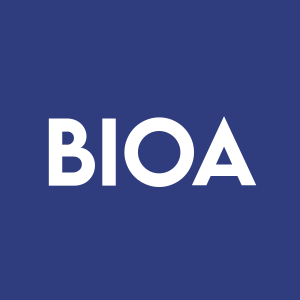Rolling sBLA initiated to the U.S. FDA for Leqembi® Iqlik™ (lecanemab-irmb) as a subcutaneous starting dose for the treatment of early Alzheimer's disease under Fast Track status
Rhea-AI Summary
BioArctic AB (Nasdaq Stockholm: BIOA B) announced that its partner Eisai has initiated a rolling submission of a Supplemental Biologics License Application (sBLA) to the FDA for Leqembi Iqlik's subcutaneous autoinjector as a weekly starting dose for early Alzheimer's disease treatment. This follows the recent approval of Leqembi Iqlik for maintenance dosing in the US on August 29, 2025.
If approved, Leqembi Iqlik would become the first anti-amyloid treatment offering at-home injection from start to maintenance. The proposed dosing regimen includes 500 mg SC dosing (two 250 mg injections) weekly, as an alternative to bi-weekly intravenous dosing. The autoinjector requires only 15 seconds per injection and could potentially reduce healthcare resources associated with IV administration.
Leqembi, currently approved in 48 countries and under review in 10 others, uniquely targets both amyloid plaque and protofibrils in Alzheimer's disease treatment.
Positive
- First potential anti-amyloid treatment offering complete at-home injection option from start to maintenance
- Fast Track Status granted by FDA, potentially expediting approval process
- Shorter administration time of only 15 seconds per injection
- Potential reduction in healthcare resources and costs compared to IV administration
- Wide global presence with approval in 48 countries and expanding
Negative
- Multiple injections required (two 250 mg injections) for each dose
- Still pending FDA approval for starting dose administration
News Market Reaction – BIOA
On the day this news was published, BIOA gained 1.94%, reflecting a mild positive market reaction. Argus tracked a peak move of +4.3% during that session. Our momentum scanner triggered 4 alerts that day, indicating moderate trading interest and price volatility. This price movement added approximately $3M to the company's valuation, bringing the market cap to $177M at that time.
Data tracked by StockTitan Argus on the day of publication.
In
Alzheimer's disease is a progressive, deadly disease with amyloid beta (Aβ) and tau as hallmarks that is caused by a continuous underlying neurotoxic process that begins before amyloid plaque removal and continues afterward.1,2,3 Only Leqembi fights Alzheimer's disease in two ways – targeting both amyloid plaque and protofibrilsi, which can impact tau downstream.
Leqembi is currently approved in 48 countries and is under regulatory review in 10 countries.
Leqembi is the result of a long-standing collaboration between BioArctic and Eisai, and the antibody was originally developed by BioArctic based on the work of Professor Lars Lannfelt and his discovery of the Arctic mutation in Alzheimer's disease. Eisai is responsible for the clinical development, applications for market approval and commercialization of Leqembi for Alzheimer's disease. BioArctic has the right to commercialize Leqembi in the Nordic region together with Eisai and the two companies are preparing for a joint commercialization in the region.
Please see full Prescribing Information for Leqembi in the US, including Boxed WARNING.
This information is information that BioArctic AB (publ) is obliged to disclose pursuant to the EU Market Abuse Regulation. The information was released for public disclosure, through the agency of the contact person below, on September 3, 2025, at 01:30 a.m. CET.
For further information, please contact:
Oskar Bosson, Vice President Communications and Investor Relations
E-mail: oskar.bosson@bioarctic.com
Telephone: +46 70 410 71 80
About lecanemab (Leqembi®)
Lecanemab is the result of a strategic research alliance between BioArctic and Eisai. It is a humanized immunoglobulin gamma 1 (IgG1) monoclonal antibody directed against aggregated soluble (protofibril) and insoluble forms of amyloid-beta (Aβ).
Lecanemab is approved in 48 countries including the
Since July 2020, Eisai's Phase 3 clinical study (AHEAD 3-45) with lecanemab in individuals with preclinical Alzheimer's disease, meaning they are clinically normal and have intermediate or elevated levels of amyloid in their brains, is ongoing. The study was fully recruited in October 2024. AHEAD 3-45 is a four-year study conducted as a public-private partnership between Eisai, Biogen and the Alzheimer's Clinical Trial Consortium that provides the infrastructure for academic clinical trials in Alzheimer's disease and related dementias in the
About the collaboration between BioArctic and Eisai
Since 2005, BioArctic has a long-term collaboration with Eisai regarding the development and commercialization of drugs for the treatment of Alzheimer's disease. The most important agreements are the Development and Commercialization Agreement for the lecanemab antibody, which was signed 2007, and the Development and Commercialization agreement for the antibody Leqembi back-up for Alzheimer's disease, which was signed 2015. In 2014, Eisai and Biogen entered into a joint development and commercialization agreement for lecanemab. Eisai is responsible for the clinical development, application for market approval and commercialization of the products for Alzheimer's disease. BioArctic has the right to commercialize lecanemab in the Nordic region and is currently preparing for commercialization in the Nordics together with Eisai. BioArctic has no development costs for lecanemab in Alzheimer's disease and is entitled to payments in connection with regulatory approvals, and sales milestones as well as royalties on global sales.
About BioArctic AB
BioArctic AB (publ) is a Swedish research-based biopharma company focusing on innovative treatments that can delay or stop the progression of neurodegenerative diseases. The company invented Leqembi® (lecanemab) – the world's first drug proven to slow the progression of the disease and reduce cognitive impairment in early Alzheimer's disease. Leqembi has been developed together with BioArctic's partner Eisai, who are responsible for regulatory interactions and commercialization globally. In addition to Leqembi, BioArctic has a broad research portfolio with antibodies against Parkinson's disease and ALS as well as additional projects against Alzheimer's disease. Several of the projects utilize the company's proprietary BrainTransporter™ technology, which has the potential to actively transport antibodies across the blood-brain barrier to enhance the efficacy of the treatment. BioArctic's B share (BIOA B) is listed on Nasdaq Stockholm Large Cap. For further information, please visit www.bioarctic.com.
1 Amin L, Harris DA. Aβ receptors specifically recognize molecular features displayed by fibril ends and neurotoxic oligomers. Nat Commun. 2021;12:3451. doi:10.1038/s41467-021-23507-z
2 Ono K, Tsuji M. Protofibrils of Amyloid-β are Important Targets of a Disease-Modifying Approach for Alzheimer's Disease. Int J Mol Sci. 2020;21(3):952. doi: 10.3390/ijms21030952. PMID: 32023927; PMCID: PMC7037706.
3 Hampel H, Hardy J, Blennow K, et al. The amyloid pathway in Alzheimer's disease. Mol Psychiatry. 2021;26(10):5481-5503.
i Protofibrils are believed to contribute to the brain injury that occurs with AD and are considered to be the most toxic form of Aβ, having a primary role in the cognitive decline associated with this progressive, debilitating condition.1 Protofibrils cause injury to neurons in the brain, which in turn, can negatively impact cognitive function via multiple mechanisms, not only increasing the development of insoluble Aβ plaques but also increasing direct damage to brain cell membranes and the connections that transmit signals between nerve cells or nerve cells and other cells. It is believed the reduction of protofibrils may prevent the progression of AD by reducing damage to neurons in the brain and cognitive dysfunction.2
This information was brought to you by Cision http://news.cision.com
The following files are available for download:
Rolling sBLA initiated to the |
SOURCE BioArctic







